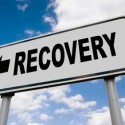Profile of a recovering alcoholic: Don – in his own words
I first entered an AA meeting on July 6th, 1965. I did not like it and would have taken any other alternative were one available at the time. So, with no other alternative, I kept coming back. I did have one life saving conviction and that was that I could not drink. Not much else about AA appealed to me, and, as a dedicated atheist, sitting in the church basements listening to some folks sermonize was barely tolerable.
I had made the initial call to AA two days after my 32nd birthday. I was picked up the next night and taken to a meeting (in Baltimore). I was appalled when they read the Baltimore prologue at the beginning of that first meeting. It states that “a belief in a higher power is indispensable to a satisfactory adjustment to life’s problems”. So at my very first meeting I was told that I wasn’t going to be successful. But in 1965 there weren’t any alternatives that I was aware of, so I kept coming back. I was appalled by what I saw as the religiosity of some AAers and developed an “attitude” toward all that insisted on telling me what I “must” do.
Fortunately, there was a fellow named Ben who had been sober 15 years or so who would always say something like, “the only ‘musts’ in AA are don’t take a drink and keep coming to meetings — and if someone has convinced you to buy a Big Book, throw it in the back of a closet”. I could do that, and I did. I got dry, and things got better.
Sometime during the first 3 or 4 months someone gave me a copy of a magazine article “AA: Cult or Cure” by Arthur Cain. What a relief to find someone that believed that AA worked for many people but also saw that for some it became a cult. I could see that. By that time I was developing friendships in AA and I realized that all of my friends didn’t proselytize or talk about “musts” or preach from the Big Book. Most of us were staying dry — getting sober — and getting “well”. That method of friend selection continued into my entry into the field and there I found many recovered folks that had a broader perspective on recovery. I think that we naturally gravitated toward one another and developed a more comfortable support system– no “musts” or insistence on anything, except “don’t take a drink”. Many of us drifted away from AA.
I continued going to AA — there still were no alternatives — but still with the same discomfort. By that time I had become skilled at identifying other members who weren’t the sermonizing type — and who were not dedicated to “The Program” but who were very adept at taking what made sense and using it. Eventually by the mid-eighties I stopped attending AA but continued to maintain very active contact with many recovered professional friends who, for the most part, seldom attended meetings themselves.
I did become fascinated with alcoholism — began studying it — and attended the Northeast Institute on Alcohol Studies and the Rutgers Summer School of Alcohol Studies in 1968 and 1969. I also joined the Baltimore Council on Alcoholism, eventually became a Board member, and, finally, in 1970 entered the field working at the national office of the National Council on Alcoholism in NYC.
I ended up working in the employee assistance (EAP) field — helping employers deal with their problem employees, which of course included employees with alcohol and drug problems. I also taught the EAP course at the Rutgers Summer School for 10 years. A bout of cancer, however, retired me in the mid nineties.
Events conspired that led to a brief relapse in 1998. With a short detox in early 1999, I returned to AA. My difficulties with AA were still there — but again I chose to endure — for about a year. This time I found that there were alternatives, other mutual recovery support systems. This past spring I just celebrated my second 10 years sober — using SOS and SMART Recovery.
So what are programs such as AA, SMART, SOS, WFS, Alcoholics Victorious, and Christians in Recovery? Each is a place where folks with similar problems go, tell each other stories, and offer one another support. And together we get it done.
Nowadays I marvel at the plethora of mutual support available and the broad mindedness of many addictions experts. I am most excited about those that are out there questioning where we are today with substance disordered folks and how we can make tomorrow even better for them. Probably, if I was going into treatment tomorrow I would end up in a support group other than AA — or I like to hope that I would, but much would depend on who was giving me initial advice. I would hope it would be another Ben.
source: The Examiner
